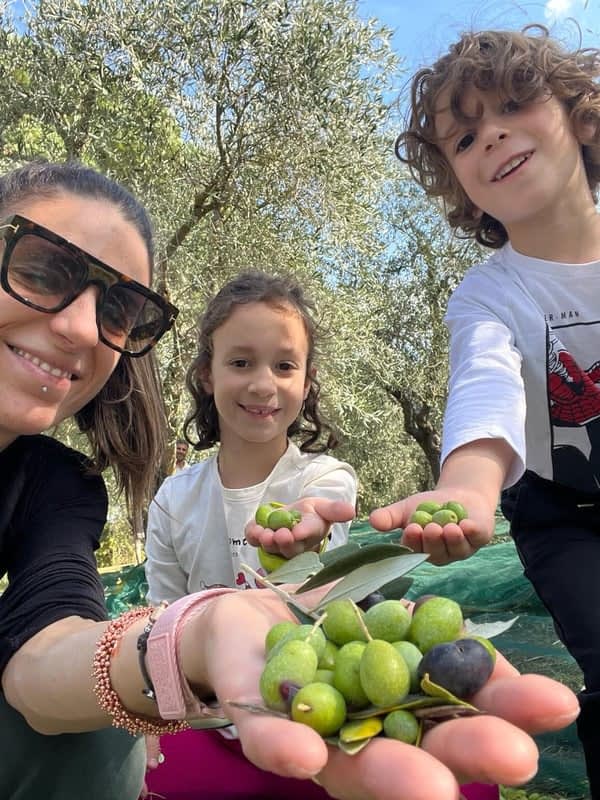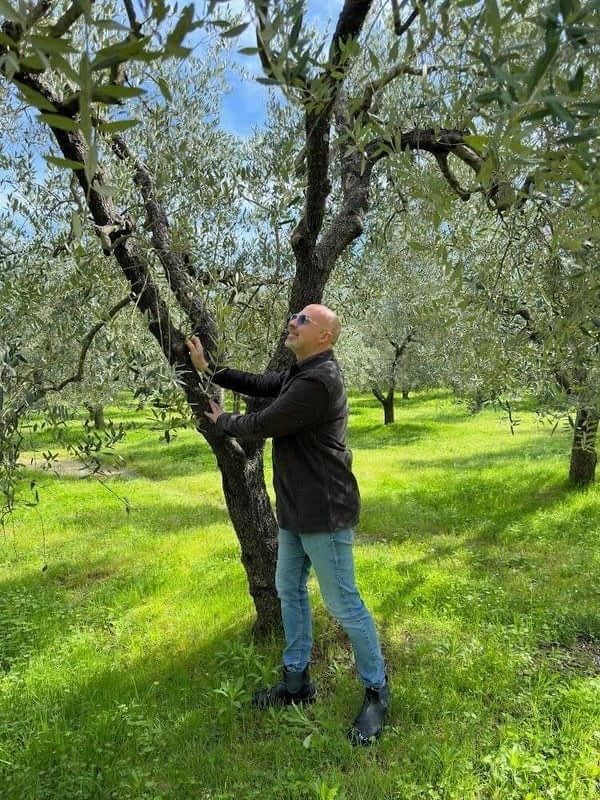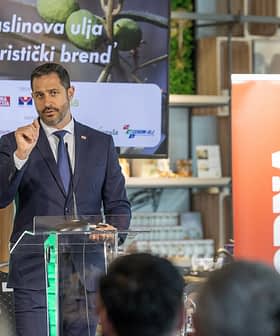A remarkable fusion of a family legacy dating back to the 16th century and the adoption of state-of-the-art technologies earned Azienda Pometti a Gold Award at the 2024 NYIOOC World Olive Oil Competition for the second consecutive year.
The company’s organic extra virgin olive oil, L’Olio Bio, is produced from roughly 1,500 olive trees scattered across the Tuscan hills in the Val d’Orcia, near Siena. This expansive organic and traditional grove is home to Leccino and Pendolino olive varieties.
The problem with large portions of today’s agriculture is the widespread use of probably outdated techniques. Nature is not being heard anymore.
Carlotta Pometti, the owner of the estate, has a longstanding history of producing olive oil, wine, spelt, a species of wheat, and lavender essential oils.
A few years back, her family committed to revamping their olive oil production processes, embracing new agronomic practices, forming partnerships with a locally celebrated olive oil mill and integrating modern technology directly in the groves.

Carlotta Pometti with her children, Ada and Cesare (Photo: Carlotta Pometti)
Luca Perotti, Carlotta’s spouse and the company’s managing director, said that the Gold Award was an unexpected delight and a reaffirmation following a year filled with challenges.
“We are extremely happy and excited about this result,” Perotti said. We knew our extra virgin olive oil was really good, as we worked so hard to achieve this goal.”
The NYIOOC wins boosted new projects and activities at the Pometti farm. “Winning in New York was an awakening, as it helped us understand that we were on the right path,” Perotti said. “Even more, it prompted us to invest more and explore new approaches to olive farming.”
“Right now, we are planning a new three-hectare expansion where we will test an old but innovative approach,” he added. “Starting this year, we will plant trees on a traditional set, even a bit vintage, as the trees will have a six-meter distance among them,” Perotti said.
See Also:Producer ProfilesProviding such wide spaces among the trees accomplishes several goals. “According to our studies, we have seen that such distances allow the trees to live a healthier, longer life,” Perotti said. “It also allows us to move around each tree better, which eases caring for the trees.”
“Furthermore, such wide distances reduce the need for treatments to curtail pests and pathogens,” he added. “Distance hampers the pathogen’s ability to spread, allows air to flow more easily through the branches and prevents the trees from competing for resources.”
According to Perotti, this traditional setup was once standard in the region. Presently, it aligns with a regenerative agricultural approach to olive cultivation that focuses on preserving and enhancing soil health, as well as bolstering local biodiversity and the crops’ resilience to stress factors.
The company employs highly advanced tools for monitoring soil moisture and tree health using electronic and digital infrastructures.
These technologies facilitate the precise balancing of direct field interventions, whether for irrigation purposes or treatments to mitigate specific pathogens.
“We have an organic approach to olive farming, and even in such context, we tend to treat our plants only when absolutely needed,” Perotti said.
It is all part of a holistic approach. “This was the norm in older times; we are planting new trees for our family and descendants,” he said. “Our trees are meant to live for a long time, a distant reality from the short-lived olive trees grown in the highly intensive orchards we see nowadays in other regions.”
The family farm already plans to expand the new olive groves from three to 20 hectares in the near future.
For the Pometti family, agronomics and technology are viewed as remedies to many of today’s challenges, including the effects of climate change.
“If people keep plowing the soil around the olive trees, promoting evapotranspiration, they will make it worse,” Perotti said. “In June, we will already apply kaolin against the excess heat and its impact.”

Lucca Perotti out pruning his olive groves. (Photo: Lucca Perotti)
“The problem with large portions of today’s agriculture is the widespread use of probably outdated techniques,” he added. “Nature is not being heard anymore, and many agronomists work behind desks way more than on the fields.”
According to the award-winning company, producing high-quality extra virgin olive oil in Italy is a genuine opportunity.
“It is an opportunity because when high-quality extra virgin olive oil is explained to the public and shared with those who visit the area, it succeeds,” Perotti said.
“We are not just talking about the final product but the whole history and facts that went into crafting that product,” he added. “We are talking about sustainability, biodiversity, how the harvest happens and how and when the olives are pressed.”
Perotti noted that Azienda Pometti is navigating through the current complex era for olive oil, which is marked by increasing prices for commercial products, inflation and escalating production costs.
“Over the years, we have seen the demand grow,” Perotti said. “That allows high-quality producers to maintain their prices at a level that provides a return on investments.”
“In my opinion, those who suffer more today intend to focus on volumes, on quantity,” he added. “In Italy, a quantity approach will always lose; we cannot compete with larger realities. On the other hand, we can definitely compete in quality.”








